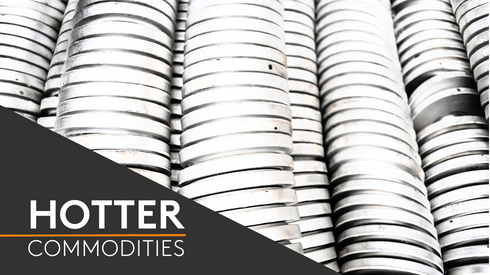“I’m not a government, and industrial policy and protecting jobs is a worthy cause… but it goes beyond subsidies,” Ana Cabral, chief executive officer of Brazil’s Sigma Lithium, told Fastmarkets on the sidelines of the event, held in London on September 26-27.
Western governments, particularly the US administration, have launched a raft of subsidies in recent times to help boost supply chains and to try to loosen China’s dominance over battery supply chains.
In Europe, market participants across the battery raw materials markets have called for increased and more tangible financial support for local supply chains and for the producers that sustain them.
Most recently, the Inflation Reduction Act (IRA), enacted by the US in September this year, saw the US Department of Energy announce $3 billion in funding to support domestic battery manufacturing.
More broadly, many previous projects that received funding under the IRA legislation have been delayed or paused indefinitely, with a Financial Times investigation finding that some 40% of the biggest US manufacturing investments announced in the first year of the policy had been delayed or paused.
European countries have launched their own grants to support domestic production. In January, the European Commission approved €902 million ($990 million) in German state aid for battery material and cell manufacturer Northvolt.
But Northvolt was continuing to face major disturbances and has significantly scaled-down expansion plans over recent months, despite the financial support, raising questions about the efficiency of the subsidies.
“The supply chain will reorganize itself around logical supply chains and, in the case of lithium, particularly around ethical and easy waste recycling [locally],” Cabral said.
Cabral has hailed the environmental-social-governance (ESG) credentials of Sigma Lithium. The company was currently producing what it calls “quintuple zero green lithium” concentrate – said to be zero carbon, zero coal power, zero tailings dams, zero utilization of potable water, and zero use of hazardous chemicals – from its Grota do Cirilo project at Vale do Jequitinhonha, in southeastern Brazil.
Cabral had been joined on an earlier panel by Brian Menell, chairman and chief executive officer of TechMet, a technology metal asset investor. Menell agreed that, in normal geopolitical conditions, subsidies should not be a consideration, but they would continue to be a major “market distortion” in the short term.
“There’s a massive national security and geopolitical overlay… and that’s going to create a lot of inefficiencies, a lot of inflationary pressures, and retard the energy transition,” he said.
Cabral said that market participants should work to “build supply chain resilience without building inefficiencies.” She suggested that industry self-regulates, and that, with traceability, companies could decide how and from where to source material.
More broadly, she echoed calls for cooperation and détente, amplified in recent conferences and industry events.
“The industry self-regulates,” she said. “Transparency makes lives easier, so introduce traceability, and let the companies decide.”
Our expert editorial team, analysts and price reporters working across metals, battery raw materials and rare earths bring you the latest price trends, market insights and forecasts for the critical minerals market. Track critical minerals markets with our price data and market coverage today.






